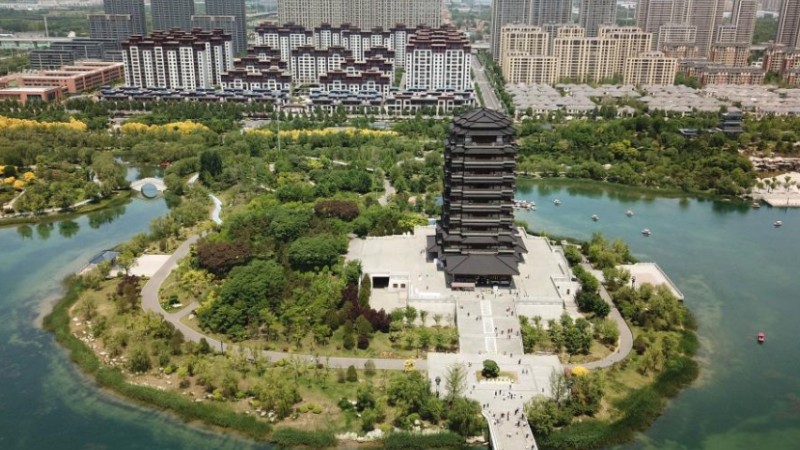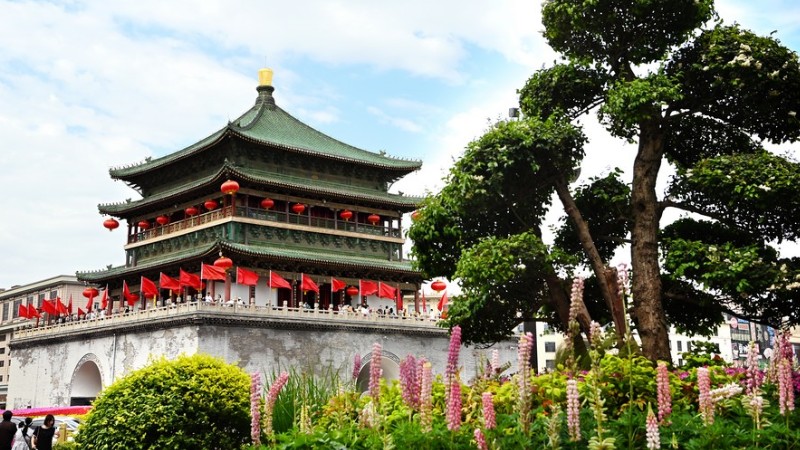Economy in focus as Türkiye heads to presidential runoff
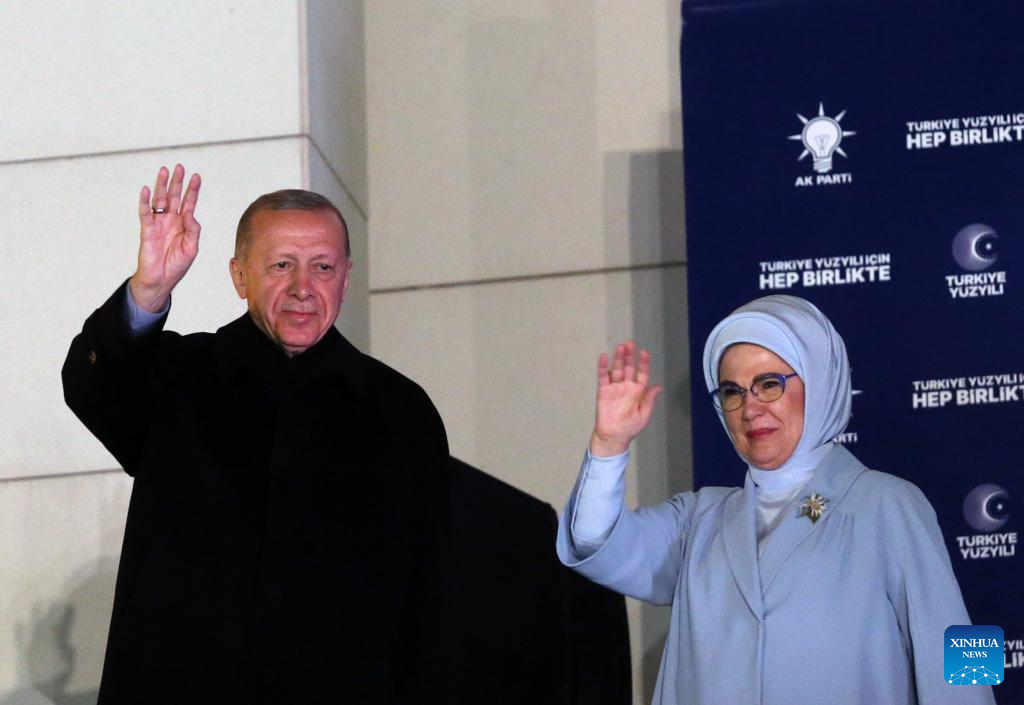
Turkish President Recep Tayyip Erdogan and his wife Emine Erdogan wave to supporters at the headquarters of Justice and Development Party (AKP) in Ankara, Türkiye, on May 15, 2023. As Türkiye's presidential elections are heading to a first-ever run-off, key economic challenges lie ahead. Taming inflation while maintaining monetary stability is vital for the country's economy, experts said. (Photo by Mustafa Kaya/Xinhua)
ANKARA, May 16 (Xinhua) -- As Türkiye's presidential elections are heading to a first-ever run-off, key economic challenges lie ahead. Taming inflation while maintaining monetary stability is vital for the country's economy, experts said.
On Monday, Turkish voters went to the polls to elect both their president and members of parliament for a term of five years. As none of the top two candidates reached the 50-percent threshold of vote to call an outright victory, a runoff was set for May 28.
The first round of ballot saw incumbent President Recep Tayyip Erdogan lead with 49.51 percent while his rival Kemal Kilicdaroglu gained 44.88 percent, said Ahmet Yener, head of the Supreme Election Board.
Business groups hailed Erdogan's election performance despite the country's economic woes, saying citizens have given him their seal of approval for his economic policies.
Citing Sekip Avdagic, head of the Chamber Of Commerce of Istanbul, semi-official Anadolu Agency reported on Monday that Erdogan's supporters voted for economic stability and confidence they felt during his rule.
Mahmut Asmali, head of the influential Independent Industrialists and Businessmen Association, also said in a statement on Monday that electors have given the green light for a "more economically independent and strong Türkiye."
He noted that Türkiye's commercial and business dynamism and strength would continue to boost the economy in the period ahead.
Regardless of who wins, the economy will still be a top priority in a country reeling in recent years from a cost-of-living crisis and high inflation, according to economists.
"Whoever wins the runoff and whatever economic policy is adopted, there will be a painful transition," Enver Erkan, chief economist at Istanbul's Dinamik Investment Securities, told Xinhua in a recent interview.
"The main scenario is that if Erdogan wins, the current policy will be maintained," he said, adding adjustments would be needed to tackle inflation and the widening current account deficit, and replenish the low foreign currency reserves of the central bank.
"Türkiye will not only elect its president but also its economic model on May 28," Erkan noted.
The main opposition alliance has promised to free up the economy and financial markets from state controls and return to orthodoxy in monetary policy with massive interest rate hikes to cool inflation.
"Kilicdaroglu pledged a return to orthodoxy but his promises pose issues for the economy as well. A promised overhaul should not kill the economy," Erkan cautioned.
Erdogan and his ruling Justice and Development Party have said, on the other hand, they would press on with low rates and a high-growth program despite inflation at nearly 44 percent and low foreign currency reserves used to stabilize the lira.
The Turkish leader has favored the unconventional method of lowering interest rates to fight rampant inflation, prioritizing growth, investments, and exports.
Despite elevated inflation which has dropped from 85 percent in October and hardships for households, some experts believe that Türkiye's longer-term economic prospects are promising.
"Turkish companies are thriving. Despite inflation and exchange rate volatilities, the economy grew by 11.4 percent in 2021 and set another 5.6 percent growth in 2022," Bilal Bagis, an economist and scholar at Istanbul's Sabanci University, wrote in an article published last week in Sabah Daily.
"Türkiye has created a more resilient and self-reliant economy" under Erdogan's leadership, he added.
Following the inconclusive presidential vote, the lira lost further ground on Tuesday against the U.S. dollar, sinking to a six-week low of 19.72, while the benchmark BIST-100 Index at the Istanbul Stock Exchange fell by over 6 percent amid political uncertainty.
Since the start of 2022, the Turkish currency lost over 70 percent of its value against the greenback, sapping Turks' purchasing power.
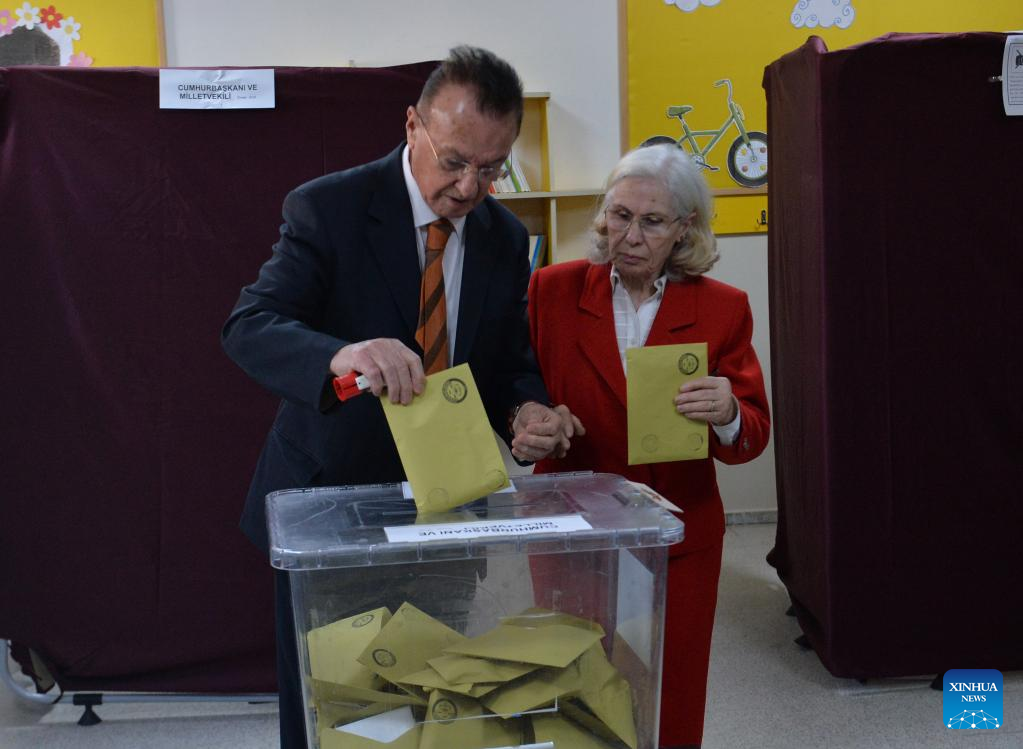
A couple cast their ballots at a polling station in Ankara, Türkiye, on May 14, 2023. As Türkiye's presidential elections are heading to a first-ever run-off, key economic challenges lie ahead. Taming inflation while maintaining monetary stability is vital for the country's economy, experts said. (Photo by Mustafa Kaya/Xinhua)
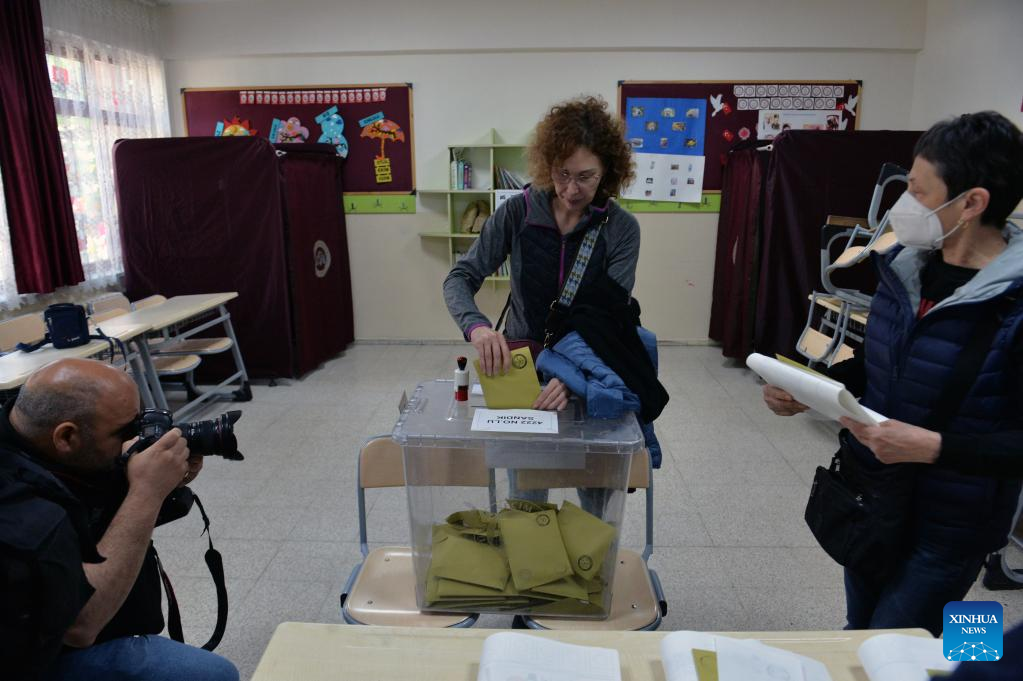
A woman casts her vote at a polling station in Ankara, Türkiye, on May 14, 2023. As Türkiye's presidential elections are heading to a first-ever run-off, key economic challenges lie ahead. Taming inflation while maintaining monetary stability is vital for the country's economy, experts said. (Photo by Mustafa Kaya/Xinhua)
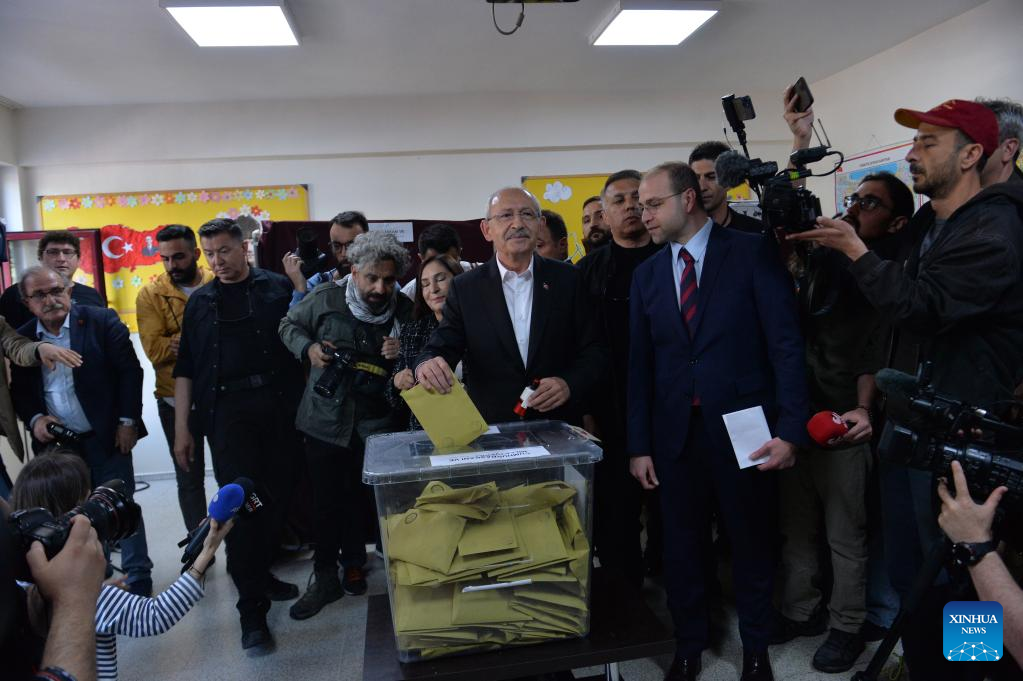
Kemal Kilicdaroglu (C), the leader of the six-party opposition bloc, casts his vote at a polling station in Ankara, Türkiye, on May 14, 2023. As Türkiye's presidential elections are heading to a first-ever run-off, key economic challenges lie ahead. Taming inflation while maintaining monetary stability is vital for the country's economy, experts said. (Photo by Mustafa Kaya/Xinhua)
Photos
Related Stories
- Türkiye's presidential election goes to likely runoff with 93 pct of votes counted
- Four-side talks in Moscow agree to assemble roadmap to normalize Syria-Türkiye ties
- Türkiye rejects U.S. proposal to send Russian-made air defense system to Ukraine: FM
- China's Honor unveils new cellphone in Türkiye
- Putin, Erdogan discuss ties, regional issues over phone
Copyright © 2023 People's Daily Online. All Rights Reserved.








